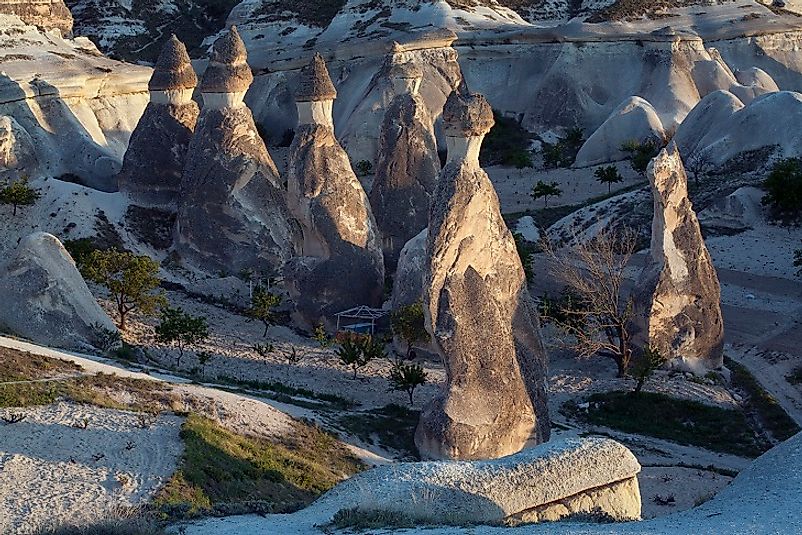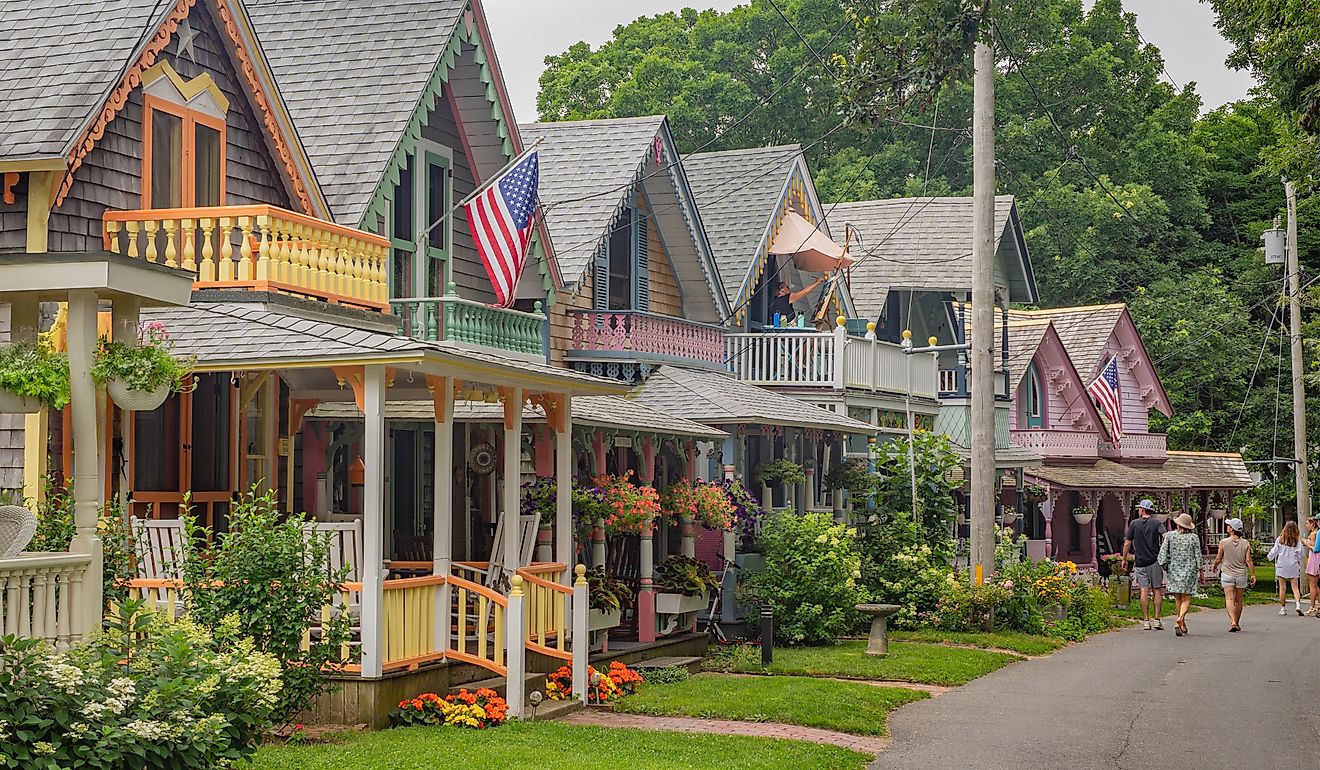Fairy Chimneys - Magical Places Of Turkey

5. Description
Cappadocia in Central Anatolia is a treasure trove of history and unique geological formations. The fairy chimneys or hoodoos of Cappadocia are one such interesting aspect of this historical place. The fairy chimneys are actually tall and narrow columnar rock formations that rise from the base of a rocky or volcanic area, usually in a badlands or a dry drainage basin. Though fairy chimneys are found in other parts of the world like the U.S.A., Serbia, or France, the ones of Cappadocia are not only valued for their spectacular appearance, but also for their association with the long and eventful history of the place.
4. Tourism
The fairy chimneys of Cappadocia have been a part of the UNESCO World Heritage Site of Göreme National Park and the Rock Sites of Cappadocia since 1985. Tourists venturing out to Cappadocia to explore the rich history of the place usually include a tour of these fairy chimney lands as a "must visit" part of their itineraries. The entire landscape including the fairy chimneys appears spectacular, representing the perfect harmony between human settlements and dramatic landforms carved out by nature. There is a lot of history and mystery to be learnt and imbibed by tourists visiting these sites in Cappadocia.
3. Geological Uniqueness
The fairy chimneys of Cappadocia are the result of thousands of years of natural weathering. Millions of years ago, massive volcanoes erupted in the region, depositing huge volumes of ash, covering the entire landscape for thousands of miles, a place that would become future Turkey. Gradually, this ash solidified into firm and porous rocks called tuff that were overlaid by layers of basalt. Exposed to the elements of nature via cracks in the basalt layer, the softer tuff underneath was washed out, leaving a cap of the basalt layer protecting a tall column of the softer tuff. Eventually, the leftover columns would also be washed away, causing the entire structure to crumble and fall. This eroding action of nature is seen only in a few places in the world and one of its most marvelous and spectacular results is visible as the fairy chimneys of Cappadocia.
2. Habitat
Though the fairy chimneys of Cappadocia and the surrounding land does not bear any permanent settlements today and is frequented only by tourists visiting this site, during ancient times, the fairy chimneys served as the homes and buildings of many people who had migrated to the site in search of a secure life. This area of Cappadocia was once part of the ancient Silk Route and had been traversed by armies and personnel of various European kingdoms and cultures like the Persians, Romans, Ottomans, Byzantines, and others. It was during the Roman period when Christians fleeing persecution in their homelands landed up in Cappadocia that they started realizing that the fairy chimneys could actually serve as base structures to build homes and churches. Thus, not only did they build architectures out of the natural hoodoos, they also built a network of subterranean cities and cave homes in the unique landscape. The subterranean cities served as refuge for the Christians during raids by armies of their enemies.
1. Threats and Conservation
Though nature might carry out its process of carving out hoodoos or fairy chimneys in Cappadocia, the significant legacy associated with the fairy chimneys of today, especially the churches and homes hewed out of the rock, representing centuries of history of human cultures and civilization, will be wiped out forever if these structures are not managed and conserved carefully. While erosion processes pose a natural threat to the integrity of these structures, tourism pressures, and future developmental initiatives also threaten to damage the fairy chimneys of Cappadocia. Already, it is evident that many of the churches that were mentioned in the accounts of early travelers have completely disappeared. Thus recognizing the outstanding universal value of the Göreme National Park and the Rock Sites of Cappadocia, both the national and regional governments have engaged their concerned departments in conserving and protecting this unique site in Cappadocia.







